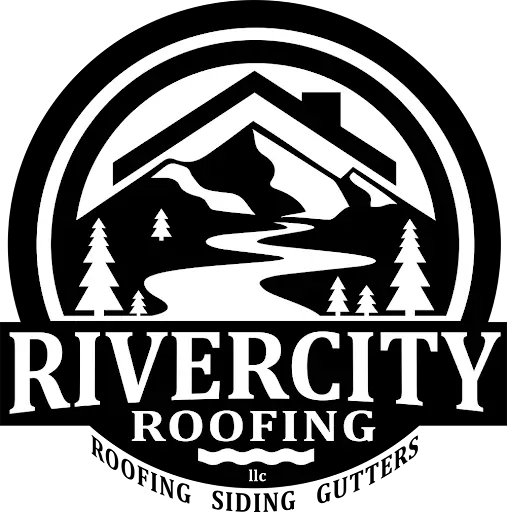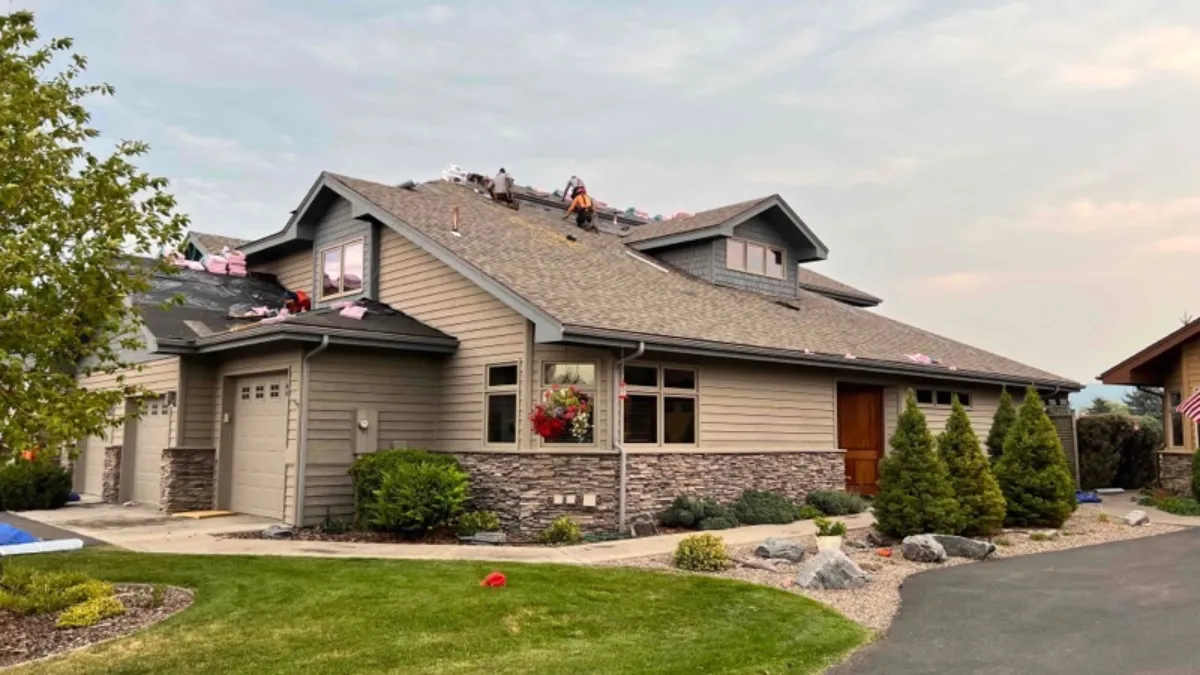Homeowners facing extreme weather conditions often wonder what is an impact-resistant roof and how it can protect their property. These specialized roofing systems are designed to withstand severe weather events, including hailstorms, high winds, and flying debris. Impact-resistant roofs offer enhanced durability and longevity compared to standard roofing materials.
This guide explores the benefits of impact-resistant roofs and the various roofing materials available for this purpose. It delves into the differences between impact-resistant shingles and regular ones, helping homeowners decide if investing in an impact-resistant roof is worthwhile. The article also covers how to tell if a roof is impact resistant and provides insights on roof replacement and repair options for those considering this protective measure.
What Is an Impact-Resistant Roof?
Definition and purpose
An impact-resistant roof serves as a protective shield for homes against severe weather conditions. It is designed to withstand the force of hailstorms, high winds, and flying debris. These roofing systems utilize top-tier materials and enhanced designs to increase the structural integrity of a roof, making it more resilient to nature’s harsh elements.
Materials used
Impact-resistant roofing materials come in various forms, including specialized asphalt shingles, metal roofing, and alternatives made from concrete, plastic, recycled resin, or rubber. These materials are engineered to resist damage from hail and other impacts that might harm ordinary shingles. Homeowners can choose from a variety of styles and colors that resemble traditional roofing materials like wood or slate.
Impact resistance rating system
The durability of impact-resistant roofing materials is measured using a standardized rating system. Two organizations, Underwriters Laboratories (UL) and FM Approvals, conduct rigorous tests to evaluate the impact resistance of roofing products. The UL 2218 test, for example, involves dropping steel balls of varying sizes onto roofing samples to simulate hailstone impacts.
The rating system classifies materials on a scale from Class 1 to Class 4, with Class 4 offering the highest level of impact resistance. To achieve a Class 4 rating, a roofing material must withstand the impact of a 2-inch steel ball dropped from a height of 20 feet without cracking or rupturing. This test helps homeowners and contractors to compare the durability of different roofing options and make informed decisions when selecting materials for roof replacement or repair.
Free Roof Inspections. Fast. Reliable.
Is your roof ready to weather the storm? Dont risk property damage. Our free roof inspections provide expert analysis to identify potential issues before they become costly problems.
Benefits of Impact-Resistant Roofs
Enhanced durability against severe weather
Impact-resistant roofs offer superior protection against extreme weather conditions. These roofing systems are engineered to withstand hailstorms, high winds, and flying debris. Class 4 rated shingles, the highest level of impact resistance, can endure the force of a 2-inch steel ball dropped from a height of 20 feet without cracking. This remarkable durability translates to fewer repairs and replacements over time.
Impact-resistant roofing materials also have a higher wind resistance rating compared to standard shingles. While regular shingles typically withstand winds up to 110 mph, impact-resistant options can handle gusts as strong as 130 mph, equivalent to a Category 4 hurricane. This enhanced protection has an influence on the longevity of the roof and the safety of the home’s occupants during severe weather events.
Potential insurance discounts
Many insurance companies recognize the value of impact-resistant roofs and offer incentives to homeowners who install them. These discounts can result in significant savings on annual insurance premiums. Some insurers provide reductions as high as 33% for homes with Class 4 impact-resistant shingles in certain states.
To qualify for these discounts, homeowners typically need to provide proof of installation of eligible impact-resistant roofing materials. It’s advisable to consult with insurance providers to understand the specific discounts available and the requirements to obtain them. The potential for long-term savings on insurance premiums can help offset the initial higher cost of impact-resistant roofing materials.
Increased home value
Installing an impact-resistant roof can have a positive impact on a home’s value. When selling a property, a durable, weather-resistant roof serves as a powerful marketing tool. Many potential buyers are hesitant to purchase homes that may require significant expenses, such as a new roof installation, shortly after buying. An impact-resistant roof provides peace of mind and can make a property more attractive to prospective buyers.
While the exact increase in home value can vary, studies suggest that a new roof generally offers a good return on investment. Some reports indicate that homeowners can recoup up to 68% of the cost of a new roof in increased home value. In some cases, the return may even exceed 100%, potentially resulting in a profit on the investment.
Types of Impact-Resistant Roofing Materials
Class 4 asphalt shingles
Class 4 asphalt shingles are a popular choice for impact-resistant roofing. These shingles are designed to withstand severe weather conditions, including hailstorms. They are manufactured using two methods: SBS (styrene-butadiene-styrene) modification and polymer-mesh reinforcement. SBS-modified shingles incorporate a rubber-like polymer, making them more flexible and resistant to impacts. Polymer-mesh shingles have a mesh material embedded in the asphalt, preventing splitting or cracking upon impact. Class 4 shingles must pass rigorous testing, including withstanding impacts from a 2-inch steel ball dropped from 20 feet without cracking or tearing.
Metal roofing
Metal roofing is known for its superior durability and weather resistance. Most metal roofs have a UL 2218 Class 4 Impact Resistance rating, making them highly resistant to hail and windstorms. Metal roofs can withstand hail impacts better than many other roofing materials, with some insurance companies offering reduced rates for homes with metal roofing. While large hailstones can cause cosmetic denting, punctures are rare, especially with thicker gage metal. A 24-gage metal roof, for example, offers better protection against hail and other elements compared to thinner options.
Synthetic slate
Synthetic slate roofing tiles offer a compelling alternative to natural slate, combining durability with affordability. Made from high-quality polymers and composite materials, synthetic slate is engineered to withstand extreme weather conditions, including hail and high winds. These tiles are non-porous, preventing issues like cracking and delamination often associated with natural slate. Synthetic slate typically achieves a Class 4 impact resistance rating, providing excellent protection against falling objects and severe weather. This roofing material offers the esthetic appeal of natural slate while delivering superior performance and longevity.
Is an Impact-Resistant Roof Worth the Investment?
Cost comparison with standard roofing
Impact-resistant roofing materials typically cost more than standard options. Class 4 impact-resistant shingles, for instance, can be 10% to 20% pricier than regular asphalt shingles. While standard shingles might cost $1.00 to $1.50 per square foot, impact-resistant varieties can range from $1.10 to $1.80 per square foot for materials alone.
Long-term savings and benefits
Despite the higher initial investment, impact-resistant roofs offer significant long-term advantages. These roofing materials have a longer lifespan, often lasting up to 30 years compared to the 15-20 year average of standard shingles. This extended durability translates to fewer repairs and replacements over time, resulting in cost savings. Additionally, many insurance companies provide discounts of 5% to 35% on homeowners’ premiums for properties with impact-resistant roofs, further offsetting the initial expense.
Factors to consider for your location
The value of an impact-resistant roof depends largely on your geographical location. Homeowners in areas prone to severe weather, such as “Hail Alley” (extending from North Dakota to northwestern Texas), stand to benefit the most from these roofing systems. In regions like Pennsylvania and New Jersey, where hailstorms, strong winds, and heavy rains are common, impact-resistant shingles can provide enhanced protection and peace of mind. When deciding on roofing materials, it’s crucial to consider local climate conditions, potential insurance savings, and the long-term durability of the product.
Conclusion
Impact-resistant roofs offer homeowners a robust solution to protect their properties from severe weather conditions. These roofing systems provide enhanced durability against hailstorms, high winds, and flying debris, potentially leading to savings on insurance premiums and an increase in home value. The variety of available materials, including Class 4 asphalt shingles, metal roofing, and synthetic slate, allows homeowners to choose an option that best suits their needs and budget.
While the initial cost of impact-resistant roofing materials may be higher than standard options, the long-term benefits often outweigh the upfront investment. Homeowners should consider their location, local climate conditions, and potential insurance savings when deciding whether to install an impact-resistant roof. In the end, these roofing systems offer peace of mind and lasting protection for one of the most important investments a person can make – their home.



